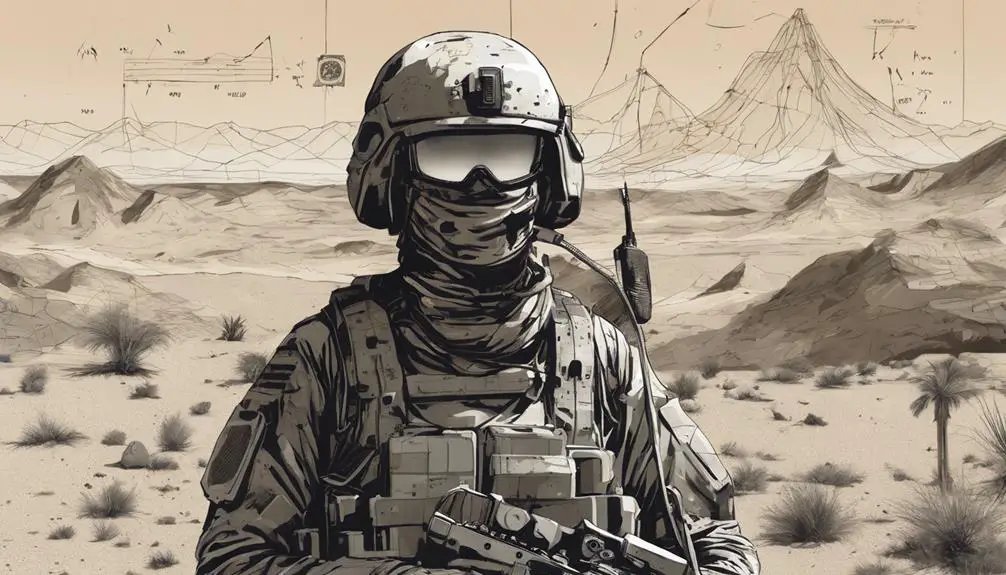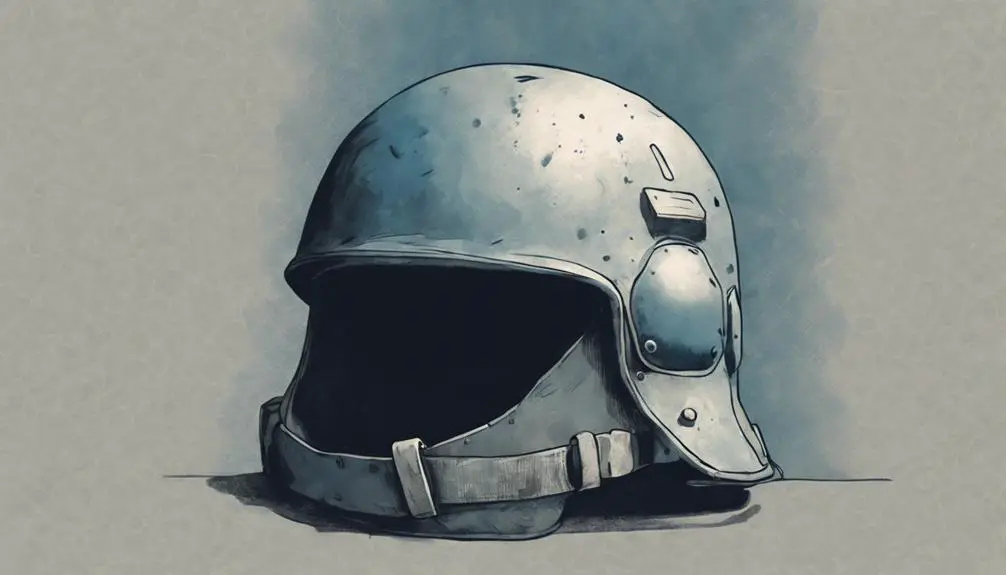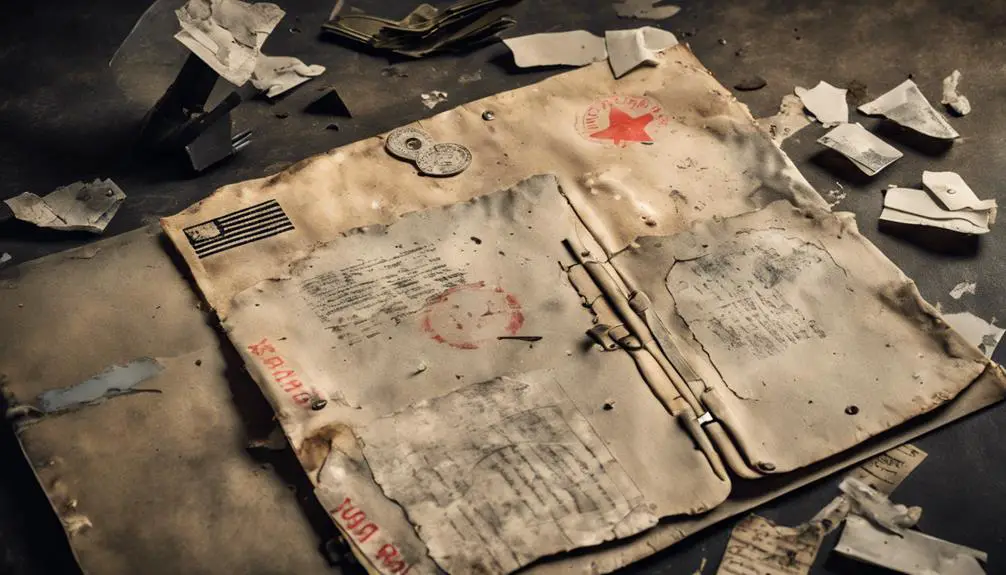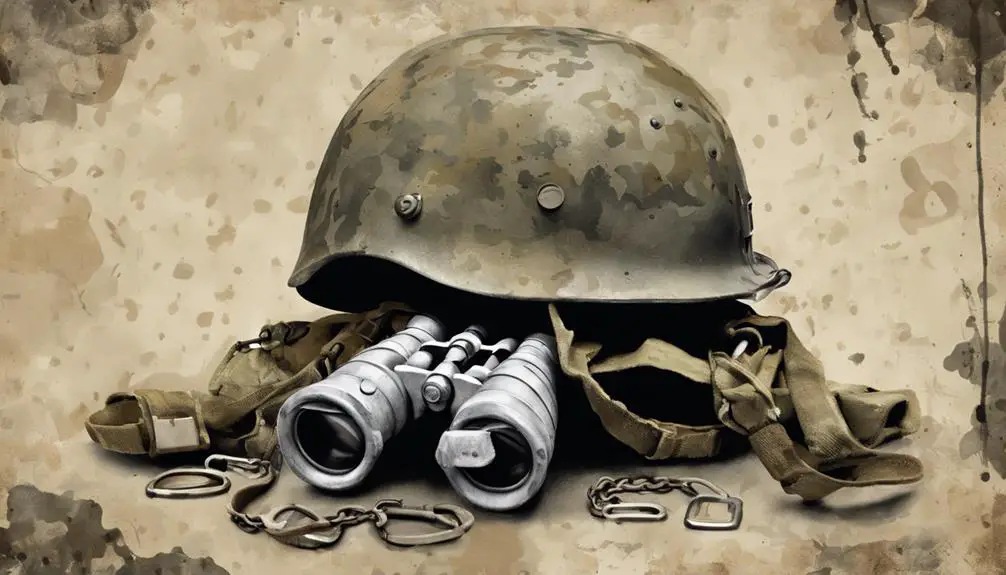You're about to enter a world of concise communication where 'copy' means more than just repeating orders. Military slang originated in ancient Rome, evolving through historical and cultural contexts. In modern warfare, it's vital for situational awareness and swift decision-making. Common phrases like 'roger that' and 'say again' facilitate seamless communication. Code names and nicknames guarantee swift identification and confidentiality. As you explore this unique lexicon, you'll discover how mastery of military slang is essential for mission success – and there's more to uncover in this complex, high-stakes language.
Origins of Military Slang

Where did military slang originate from, and what historical events and cultural influences have shaped its evolution over time?
As you explore the world of military slang, you'll find that its etymological roots are deeply embedded in history. The earliest recorded instances of military slang date back to ancient Rome, where soldiers used colloquialisms to communicate quickly and efficiently on the battlefield.
In the centuries that followed, military slang continued to evolve, influenced by cultural and historical contexts. During World War I, for instance, soldiers used slang to cope with the harsh realities of trench warfare. The term 'trench fever' originated from this period, describing the widespread illness that plagued soldiers in the trenches.
As you investigate military slang further, you'll notice that it's not just limited to wartime. Peacetime military operations have also contributed to the development of slang. The US military's presence in various parts of the world has led to the adoption of local phrases and words, which have been incorporated into military language.
Understanding the historical context of military slang is essential to appreciating its significance in modern military culture.
Common Copy Phrases
You'll often hear military personnel using common copy phrases to convey critical information quickly and accurately during operations. These phrases are designed to be concise, clear, and easy to understand, even in high-stress situations. In radio protocol, effective copywriting tips are vital to guarantee seamless communication.
Here are three essential common copy phrases used by military personnel:
- Roger that: This phrase indicates that the message has been received and understood. It's often used to acknowledge instructions or confirm receipt of information.
- Say again: When you didn't quite catch what was said, this phrase is used to request the sender to repeat the message.
- Over: This phrase indicates the end of a transmission, similar to saying 'end of message.'
Slang in Modern Warfare

In modern warfare, soldiers rely on a unique lexicon of slang to quickly convey complex information and maintain situational awareness amidst the chaos of battle. You, as a soldier, need to comprehend this specialized language to stay ahead in the digital battlefields and virtual firefights. This slang enables you to swiftly communicate with your team, ensuring seamless coordination and effective decision-making.
| Slang Term | Meaning | Context |
|---|---|---|
| "SITREP" | Situation Report | Used to request or provide updates on the battlefield |
| "OPS" | Operations | Refers to military operations or missions |
| "COMMS" | Communications | Pertains to communication systems or networks |
| "SOFREP" | Special Operations Forces Report | A report detailing SOF activities and intelligence |
In the heat of battle, every second counts. By familiarizing yourself with this specialized slang, you can respond more efficiently, making a critical difference in the outcome of a mission. As you navigate the complexities of modern warfare, mastery of this unique language is essential to your success.
Code Names and Nicknames
Your familiarity with code names and nicknames is essential in modern warfare, as they enable swift identification of people, places, and operations while maintaining secrecy. In a high-stakes environment, clarity and importance are vital, and code names and nicknames provide a concise way to communicate complex information.
Operation monikers, such as 'Operation Desert Storm,' are used to identify military operations, while classified handles, like 'Eyes Only,' are used to safeguard sensitive information. These cryptic labels serve as a shorthand for complex concepts, allowing military personnel to quickly grasp the essence of a situation.
Here are three key aspects of code names and nicknames:
- Secrecy: Code names and nicknames maintain confidentiality by concealing sensitive information from unauthorized parties.
- Brevity: They provide a concise way to communicate complex information, facilitating swift decision-making.
- Clarity: Code names and nicknames make sure that military personnel understand the context and objectives of an operation, reducing confusion and miscommunication.
Emotions in Brief

What emotional triggers do military personnel need to recognize in themselves and others to maintain unit cohesion and achieve mission success?
As you operate in high-stress environments, it's important to acknowledge and manage your emotions to stay focused on the mission. Battle Fatigue, a state of physical and mental exhaustion, can impair your judgment and reaction time. Recognizing the signs of Battle Fatigue in yourself and others is essential to prevent it from crippling your unit's effectiveness.
Developing Emotional Armor, a mental shield that protects you from emotional turmoil, is necessary to cope with the psychological demands of military life. By acknowledging and addressing emotional triggers, you'll build resilience and improve your ability to work under pressure.
You'll also become more attuned to the emotional states of your teammates, enabling you to provide support and maintain unit cohesion. Remember, emotions can be a liability or an asset, depending on how you choose to manage them. By recognizing and regulating your emotions, you'll stay focused, sharp, and mission-ready.
Tactical Communication
Effective communication is critical to mission success, and as a military personnel, you must develop the skills to convey complex information quickly and accurately in high-pressure situations. In tactical communication, every second counts, and clarity is key. You must be able to convey critical information to your team and receive feedback in real-time.
To guarantee seamless communication, follow these essential guidelines:
- Use clear and concise language: Avoid using jargon or complex terminology that may confuse your team.
- Follow established radio protocol: Adhere to standardized communication procedures to guarantee secure and efficient transmission of information.
- Utilize secure messaging: Encrypt sensitive information to prevent unauthorized access and maintain operational security.
Declassified Lingo

Military slang, also known as 'mil-speak,' has evolved over time, incorporating colloquialisms, acronyms, and abbreviations that serve as a unique language within the military community. You'll find that understanding this lingo is essential for effective communication among military personnel.
In the past, certain terms were reserved for classified operations, but with the declassification of sensitive information, you now have access to previously restricted language.
Declassified documents, like those found in Secret Archives, have shed light on Cryptic Leaks, revealing the extent of military terminology used during covert operations. These revelations haven't only expanded your vocabulary but also provided insight into the strategic planning and execution of military missions.
You'll notice that many of these terms have been adopted into mainstream language, becoming an integral part of popular culture. As you explore the world of military slang, you'll discover a unique dialect that's both fascinating and functional.
Evolution of Copy
As you venture into the domain of military slang, you'll notice that the language itself has evolved immensely over time, with the way information is conveyed – or 'copy' – undergoing a remarkable transformation. The evolution of copy has been shaped by technological advancements, operational requirements, and cultural influences. Today, military communication is more efficient, secure, and adaptable than ever before.
Here are three key aspects of the evolution of copy:
- Digital Legacy: The shift from traditional radio communication to digital platforms has enabled faster, more secure, and reliable transmission of information. This digital legacy has transformed the way military personnel communicate, making it easier to convey critical information in real-time.
- Creative Syntax: The use of abbreviations, acronyms, and codewords has become an essential part of military communication. This creative syntax allows for concise and efficient transmission of complex information, reducing errors and miscommunication.
- Operational Adaptability: Military communication has become more agile, with personnel adapting to new situations and environments. This adaptability has enabled the development of innovative communication strategies, ensuring that military operations remain effective and efficient.
Through this evolution, military slang has become a unique blend of traditional terminology and modern innovations, reflecting the dynamic nature of military communication.
Frequently Asked Questions
Are Military Slang and Jargon Interchangeable Terms?
You're wondering if military slang and jargon are interchangeable terms. While they're often used together, they've distinct linguistic nuances.
Jargon typically refers to specialized vocabulary used within a specific group or profession, like the military. Slang, on the other hand, is informal language that's often unique to a particular region or cultural context.
Understanding their historical context is key to appreciating their differences.
Can Civilians Use Military Slang in Informal Conversations?
You're probably wondering if you can casually drop military slang into everyday conversations. The answer is yes, but with caution. Be mindful of cultural appropriation, as using military lingo without understanding its context can come across as insensitive.
However, language evolution relies on borrowing and adaptation. If you're respectful and use terms correctly, military slang can add flavor to your conversations. Just remember to be authentic and avoid tokenization.
Is Military Slang Limited to the US Military Only?
You might think military slang is exclusive to the US military, but it's not. International adoption of military slang is common, with many countries incorporating their own versions.
Cultural influences have led to the development of unique slang in various militaries worldwide. For instance, the British military has its own distinct slang, while the Australian military has adopted some US terms with local twists.
You'll find military slang is a global phenomenon, adapted and modified to fit local contexts.
Are There Any Military Slang Words With Origins in Ancient Languages?
You're curious about ancient language influences on military slang.
Surprisingly, yes, some military slang words have Latin roots. An etymological analysis reveals that terms like 'castra' (meaning camp or fort) and 'vigil' (meaning watch or guard) originated from Latin.
These words have been adopted and adapted into modern military vocabulary, demonstrating the lasting impact of ancient languages on contemporary military communication.
Do Military Slang Terms Vary Across Different Military Branches?
You might be surprised to know that the US military has over 1,000 unique slang terms.
Now, let's explore the question: do military slang terms vary across different military branches?
The answer is yes. Branch comparisons reveal distinct service differences. For instance, the Navy's 'cup of joe' for coffee differs from the Army's 'brew.'
Similarly, the Air Force's 'billet' for a job assignment contrasts with the Marine Corps' 'billet' for a living quarters.
These variations highlight the unique cultural identities within each branch.
Conclusion
As you stand at the forefront of the battlefield, the rhythmic chants of 'HOOAH' echoing in your ears, you realize that military slang is more than just a dialect – it's a shield, a bond, and a beacon of hope.
Like a worn dog tag, it's a symbol of resilience, a demonstration to the unbreakable spirit of those who serve.
As the dust settles, remember that the true language of war isn't in words, but in the silence that follows.







